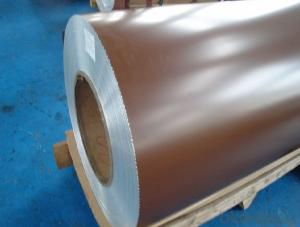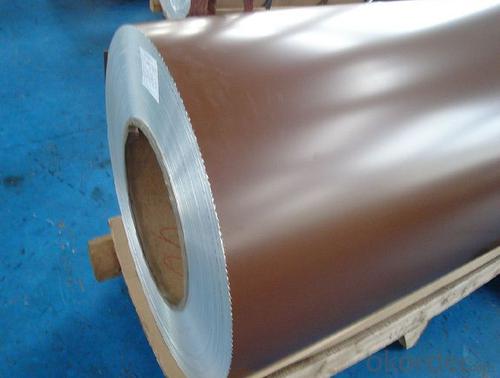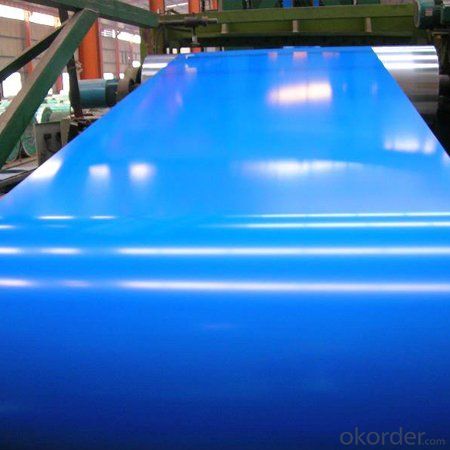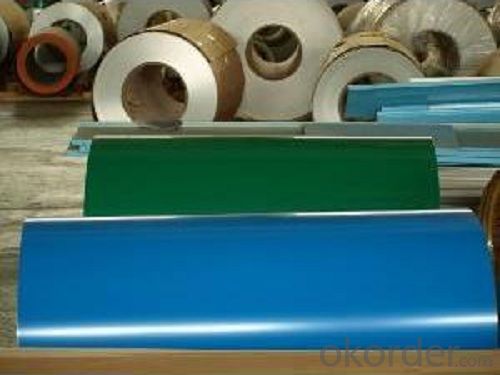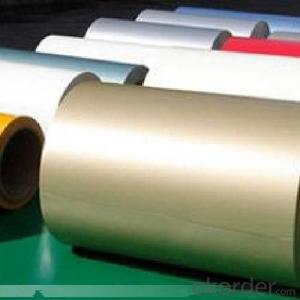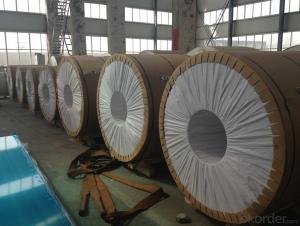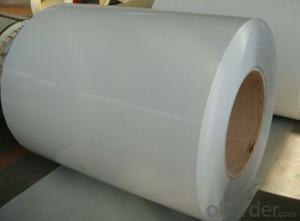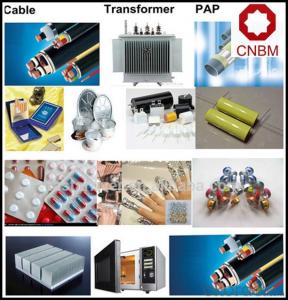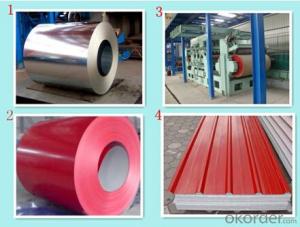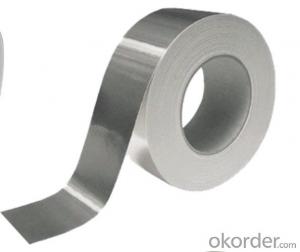Wide Aluminum Roof Coil - Coated and Prepainted Aluminum Coil
- Loading Port:
- Shanghai
- Payment Terms:
- TT OR LC
- Min Order Qty:
- 2.5
- Supply Capability:
- 5000 m.t./month
OKorder Service Pledge
OKorder Financial Service
You Might Also Like
Specification
Coated Aluminum Coil /Prepainted Aluminum Coil
l Product Information
1 | Alloy: | A1100, A1050, A1060,A3003, A3004, A3005, A3105 , A5052, , A5754, A8011 etc. |
2 | Temper: | H14, H16, H18, H24 etc. |
3 | Thickness: | 0.2mm - 2.0mm |
4 | Width: | 15mm - 1600mm |
5 | Color: | chromic,white,metallic and so on(Customized, choose from RAL color chart or refer to customers' counter sample.) |
6 | Coating: | Polyester(mainly),Fluorocarbon(mainly),polyurethane and epoxy coating ect. |
7 | Coating thickness: | PVDF≥25 micron; PE≥18 micron. |
8 | Surface Quality: | be free from Oil Stain, Dent, Inclusion, Scratches, Stain, Oxide Dicoloration, Breaks, Corrosion, Roll Marks, Dirt Streaks and other defect which will interfere with use. |
9 | Mechanical Property: | Chemical Composite and Mechanical Property are meted with GB/T, ASTM, ENAW Standard. |
10 | Interior diameter: | 105mm or 405mm or 505mm |
11 | Coating hardness: | (pencil hardness) more than 2H |
12 | Impact resistance: | no cracking and peeling(≥50kg/cm) |
13 | Flexibility(T-bend) : | ≤ 2T |
14 | MEK resistance: | more than 100 |
15 | Application: | roofs, facade cladding, ceilings, aluminum curtains, composite panels, pipe wrap, advertisement plates, instrument panels, and other uses. |
l Product Information
Packaging detail: Standard seaworthy exporting carton, Wooden pallets, waterproof paper and plastic coverage or as customer's requirements
Delivery detail: about 25 days from received original L/C or advance payment.
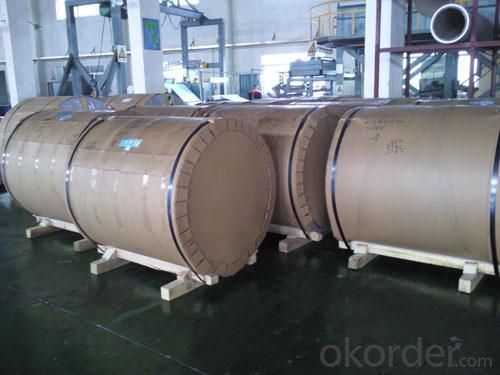
l Company Profile
CNBM International Corporation, China National Building Materials (Group) Corporation, is one of the largest companies in China building material & equipment industry, with 42,800 employees and sales in 2005 of US Dollar 4.395 billion. In 2006, China National Building Material Company Limited was listed on Hong Kong Stock Market with the stock code as 3323.
Aluminium coil is a popular product in the market of CNBM. With advanced technology and equipment, CNBM has sold its hight quality aluminium coil to the world.
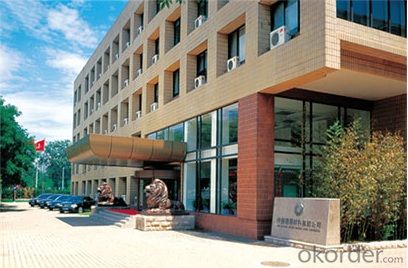
l Product Images
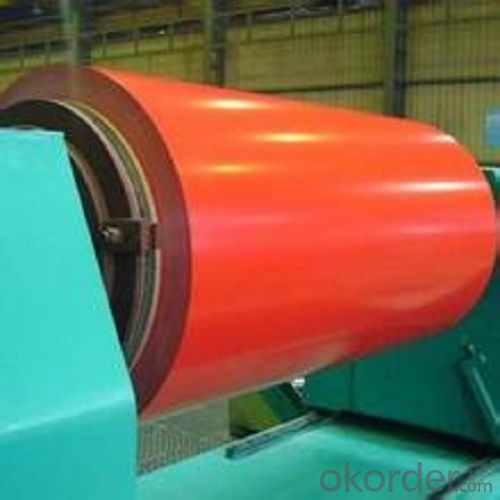
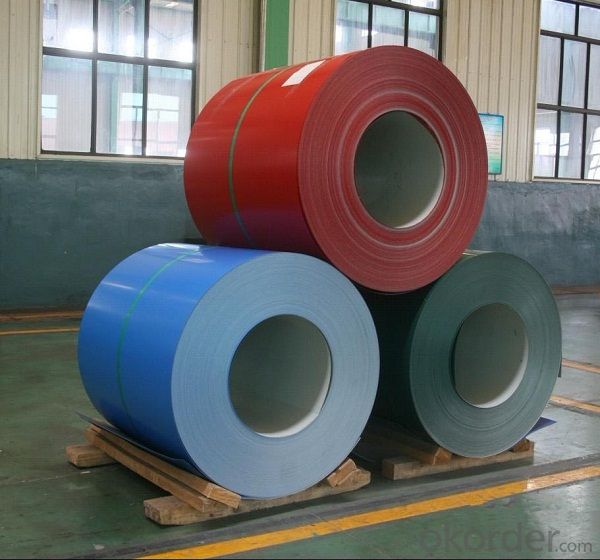
l Certificates
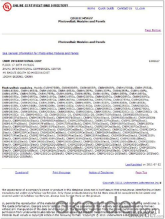
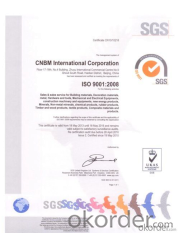
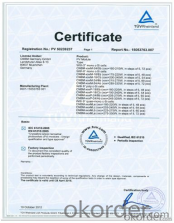
l FAQ
Q: Do you provide free samples?
A: Yes, free samples will be sent to you on freight at destination.
Q: Can I get your latest products catalogue?
A: Yes, it will be sent to you in no time.
Q: What is the MOQ?
A: 2.5 tons
Q: What are your payment terms?
A: We accept L/C, T/T.
- Q: Are aluminum coils suitable for interior design applications?
- Yes, aluminum coils are suitable for interior design applications. Aluminum is a versatile material that offers durability, lightweight properties, and resistance to corrosion. It can be easily shaped, painted, or coated to match various design aesthetics. Additionally, aluminum coils are commonly used for decorative purposes like ceiling panels, wall cladding, and furniture components, making them a popular choice in interior design projects.
- Q: What are the different coil packaging sizes available for aluminum coils?
- The different coil packaging sizes available for aluminum coils vary depending on the manufacturer and industry requirements. Common coil packaging sizes for aluminum coils range from small coils with diameters as small as 150mm to larger coils with diameters exceeding 1000mm. The coil widths can also vary, typically ranging from 100mm to 1500mm. However, it is important to note that specific coil packaging sizes may differ based on customer specifications and the intended application of the aluminum coils.
- Q: Are aluminum coils suitable for automotive heat shields?
- Yes, aluminum coils are suitable for automotive heat shields. Aluminum is a lightweight and highly heat-resistant material, making it an ideal choice for heat shields in vehicles. Its excellent thermal conductivity allows it to effectively dissipate and reflect heat, protecting sensitive components and reducing the risk of overheating. Additionally, aluminum coils are durable and can withstand the harsh conditions often encountered in automotive applications.
- Q: Can aluminum coils be recycled?
- Indeed, it is possible to recycle aluminum coils. Due to its exceptional recyclability, aluminum stands as one of the frequently recycled materials. The procedure for recycling aluminum coils encompasses melting them to eliminate impurities and subsequently molding them into fresh products or coils. By recycling aluminum coils, not only are natural resources preserved, but also energy consumption and greenhouse gas emissions are diminished relative to the production of new aluminum from primary materials.
- Q: How do aluminum coils contribute to lightweight vehicle design?
- Aluminum coils contribute to lightweight vehicle design by providing a lightweight and strong material for various components, such as the body panels, frame, and suspension parts. The use of aluminum coils reduces the overall weight of the vehicle, improving fuel efficiency, handling, and performance while also potentially reducing emissions.
- Q: Can aluminum coils be used for electromagnetic shielding?
- Yes, aluminum coils can be used for electromagnetic shielding. Aluminum is a good conductor of electricity and can effectively block or divert electromagnetic radiation. Its high conductivity and ability to create a Faraday cage make it a suitable material for shielding against electromagnetic interference (EMI) in various applications such as electronics, telecommunications, and power transmission.
- Q: What is the primary function or use of a spring steel wire coil?
- <p>A spring steel wire coil is primarily used for its high elasticity and strength. It is designed to return to its original shape after being deformed, which makes it ideal for applications requiring resilience and durability. Common uses include the manufacturing of various types of springs, such as compression springs, torsion springs, and extension springs, found in automotive suspensions, mechanical devices, and industrial equipment. The coil's properties also make it suitable for applications in furniture, electronics, and other industries where a reliable and consistent force is needed.</p>
- Q: Can aluminum coils be used for electrical enclosures?
- Yes, aluminum coils can be used for electrical enclosures. Aluminum is a commonly used material for enclosures due to its excellent conductivity, lightweight nature, and resistance to corrosion. It provides good protection against electromagnetic interference and can effectively dissipate heat. Additionally, aluminum coils can be easily formed and fabricated into various shapes and sizes, making them suitable for electrical enclosures in different applications.
- Q: Can aluminum coils be used for HVAC condenser coils?
- Indeed, HVAC condenser coils can utilize aluminum coils. In recent times, aluminum coils have gained significant popularity owing to their myriad benefits over conventional copper coils. With their lighter weight and enhanced durability, aluminum coils exhibit superior resistance to corrosion. Additionally, they boast exceptional heat transfer properties that enable efficient refrigerant cooling. Furthermore, aluminum coils prove to be more cost-effective and environmentally sustainable in comparison to copper coils. All in all, opting for aluminum coils for HVAC condenser coils is a viable and advantageous choice.
- Q: Can aluminum coils be used in food packaging?
- Yes, aluminum coils can be used in food packaging. Aluminum is a popular choice for food packaging due to its excellent barrier properties, lightweight nature, and ability to maintain the freshness and quality of food products. It is widely used in various forms, including coils, for packaging food items like beverages, snacks, and canned goods.
Send your message to us
Wide Aluminum Roof Coil - Coated and Prepainted Aluminum Coil
- Loading Port:
- Shanghai
- Payment Terms:
- TT OR LC
- Min Order Qty:
- 2.5
- Supply Capability:
- 5000 m.t./month
OKorder Service Pledge
OKorder Financial Service
Similar products
Hot products
Hot Searches
Related keywords
